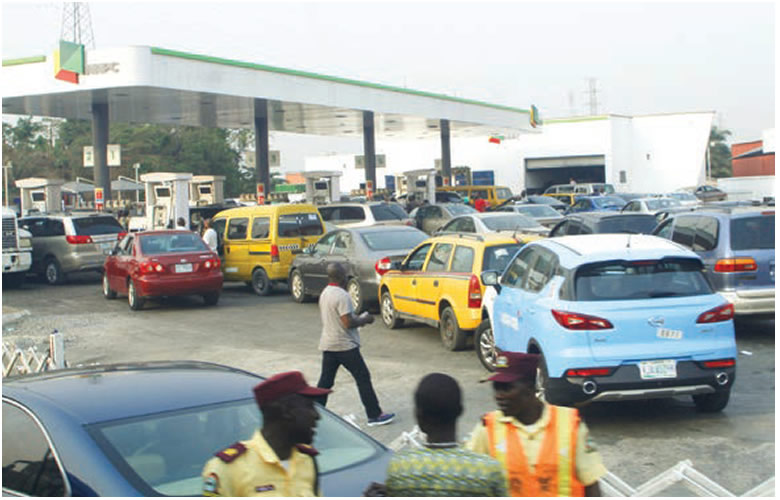
There are two tragedies in life; one is not to get your heart’s desire. The other is to get it
–George Bernard Shaw
The pre-1999 Lagos was bedevilled with serious environmental and socioeconomic malaise of unprecedented proportions, which earned it various unprintable expletives. Journalist, Karl Maier, described the then Lagos as “a nightmare come true, an urban sinkhole, and a buzzing hive of humanity living in a seemingly endless patchwork of cement houses and shacks, on top of swamps and lagoons. A most inhospitable place full of frustration borne by millions of people who moved to the city in search of riches, but only found poverty, power cuts, water shortages and a breath-taking mounds of garbage.”
Like any other state under the yoke of our pseudo-fiscal federalism, Lagos State was totally dependent on the paltry and unpredictable handouts from Abuja. The security situation was equally precarious as daylight bank robberies became a daily occurrence. Violent and bloody inter-ethnic clashes were common, while the legacy of political assassination inherited from the military was deeply entrenched.
Asiwaju Bola Tinubu hit the ground running in 1999 as the governor of Lagos State. He put in place a formidable transition team that developed a blueprint which was further codified in the second term of the administration and became the Ten Point Agenda mantra. The overriding policy thrust of the TPA were poverty alleviation, (later, eradication) and sustainable economic growth, which became the backbone of the state’s subsequent Development Plans 2012 – 2025 and 2022 – 2052. The stable political environment, effective tax structure, strategic infrastructural development, business-friendly environment and massive entrepreneurial investment made the state realise the Nigerian dream of a diversified non-oil economy. While the national Gross Domestic Product, was struggling at just above two per cent per annum in 2022, the state GDP as computed by the Lagos Bureau of Statistics was a staggering 16 per cent.
Just like 1999, President-elect Tinubu has a herculean task on his hands. The global economy has been in the doldrums since 2014, further compounded by the COVID-19 pandemic and the Russia–Ukraine war. With poverty, unemployment, inflation, exchange rates and national debt at unprecedented negative levels, it is necessary for the new administration to not only hit the ground running but also concentrate on a few low-hanging fruits as identified below:
Fuel subsidy: Nigeria spent almost N4.8tn on servicing fuel subsidy in 2022. This is projected to hit more than N6tn in 2023, if not halted. In a research carried out by BudgIT in 2019, the civic organisation found out that between 2006 and 2018, an amount of N10tn was spent on fuel subsidy, and estimated the opportunity costs of this spend as follows:
It would build and equip 2,400 units of 1000-bed hospitals across the 774 Local Government Areas in Nigeria.
It would build 500,000 new houses for families through mortgage at N20m per house.
It could generate additional 27,000mw of green, solar-powered electricity to the national grid.
It could educate and skill up two million Nigerians with global standard quality education and sought-after skills.
What the above shows is that if citizens, labour unions, Chief Security Officers and Non-Governmental Organisations who have perennially resisted removal of fuel subsidy are fully aware of the alternatives forgone, they would not have been so vehement. Thus, apart from working on the palliatives to cushion the effects of subsidy removal, it is absolutely necessary to embark on massive consultation, sensitisation and perception management for the relevant stakeholders, to drive home the fact that the short-term sacrifices and agonies of deregulation would be amply rewarded by tremendous private sector investment along the value chain that would have made Nigeria a net exporter of refined petroleum products, if earlier adopted.
Debt rescheduling and revenue enhancement: One of the key elements of the TPA was Revenue Enhancement, with the objectives of revenue diversification, widening of the tax net, effective revenue collection mechanism and the development of a tax database. The targeted outcomes of this initiative had been largely achieved. In an analysis carried out by Business Day of January 29, 2021, the newspaper advised the Federal Government to draw inspiration from Lagos State on how to better manage financial resources. It pointed out that even in 2020, with the debilitating effects of COVID-19, Lagos State hit 93 per cent of her projected revenue, compared to 73 per cent attained by the Federal Government. In the same year, Lagos State recorded revenue-to-debt service ratio of 19.8 per cent, which is less than the World Bank’s benchmark of 44 per cent, compared to the Federal Government figure of 83 per cent.
Equally precarious is the country’s unsustainable debt profile. According to the Debt Management Office, the national debt stock is about N48tn with another over N20tn owed the Central Bank of Nigeria as Ways and Means Advances. With the country literally using all earned income to service debts, the incoming administration should consider rescheduling of the entire debt portfolio to give it a breather.
Alternative funding sources that should be urgently considered include selling of equity in dollar-denominated JV assets estimated to be about $60bn, disposing dead capital trapped in Federal Government real estate property reputed to be worth about N180tn, embarking on a sovereign-type rights issue, tapping Nigeria’s proven gas reserves worth over $460bn, encouraging Public-Private Partnership to finance infrastructure projects and concession of state-owned enterprises in key sectors, such as airports, rail, seaports and transmission, and reducing cost of governance by rationalising the more than 700 government agencies as recommended by the Stephen Oronsaye Committee.
Federal Ministry of Economic Planning: When BAT became the governor of Lagos State in 1999, one of the first things he did was to upgrade the then Plans, Programmes and Budget Bureau to a full-fledged ministry, the first in the country. Since then, many states have followed this initiative with some of them mentored by Lagos State. About 27 states have separated their Ministries of Budget and Planning from their Ministries of Finance. The advantage of this is the professionalisation of the planning, budgeting, monitoring and evaluation functions whose core competencies are quite different from those of the Ministry of Finance. A Federal Ministry of Economic Planning and Budget with a full cabinet-ranking minister is desirable.
- Sodade is a retired permanent secretary in Lagos State Government





